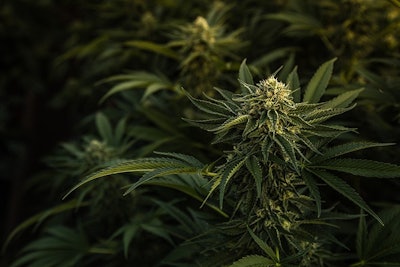
California Gov. Gavin Newsom’s revised state budget proposal includes eliminating California’s cannabis cultivation tax, but in Santa Barbara County, local officials have decided to keep the tax intact within their jurisdiction for now.
The Santa Barbara Board of Supervisors voted May 17 against altering the current taxation system, which is based on the self-reported dollar value of the crops, according to the Santa Ynez Valley News.
The board did, however, direct its staff to draft ordinance amendments that would implement a “use it or lose it” policy for cannabis operators who have secured cultivation space within Santa Barbara County’s acreage cap but are not currently growing plants, the news outlet reported.
County leaders also want to clarify in the ordinance that transfers of cannabis products between a one business’s operations to a separate business’s facilities—such as seedlings from one operator going to the cultivation facility of another—are considered taxable sales, according to the Santa Ynez Valley News.
The Board of Supervisors gave its staff six months to work on both issues and report back, the news outlet reported.
Prior to Tuesday’s vote, staff members had offered the board three options for tax reform, which included converting the tax system from a percentage of receipts to a tax based on the square footage of a cultivation operation, a hybrid system that would combine the percentage of receipts with a minimum tax, and maintaining the current system but amending the cannabis ordinances with recommendations from the board, according to the San Ynez Valley News.
The board shied away from a major overhaul of the tax system, in part, because it would have required a public vote, the news outlet reported, and the deadline for placing a measure on the November ballot is only six weeks away.
County officials also expressed concerns about setting a per-pound tax rate since there is no index for what cannabis could sell for at any given time, the San Ynez Valley News reported.
“The more you look at this, the harder it is to figure out something that works all the way around—for the county, the residents and the growers,” 5th District Supervisor Steve Lavagnino said, according to the news outlet.

























